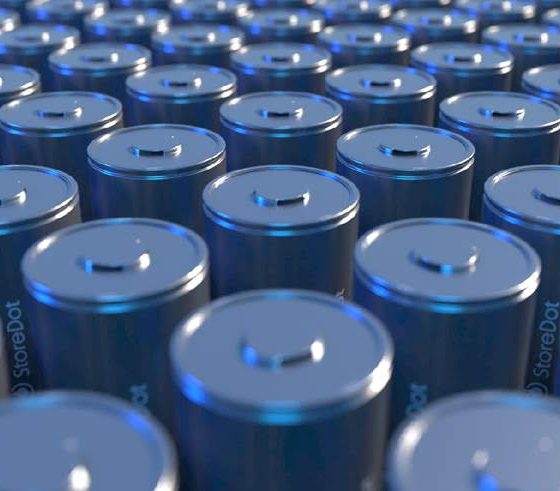Tesla’s 4680 battery cell will revolutionize electric vehicle batteries through more energy density, longer life cycles, and increased power. However, StoreDot, an Israeli lithium-ion battery company claims it has replicated the 4680 cell with one kicker: it can be fully charged in ten minutes.
The ten-minute charge time 4680 cell has been in development for three years, according to StoreDot CEO Dr. Doron Myersdorf. “Achieving the goal of extreme fast charging a cylindrical cell in only 10 minutes has been on StoreDot’s technology roadmap from day one,” Myersdorf said. “After three years of vigorous development and testing, leveraging multiple vectors of our world-class researches, I am hugely proud at the effective collaboration across our globe that enabled this important achievement. It’s highly significant that we can offer Electric Vehicle manufacturers the choice of cell formats, utilizing our XFC technology that will overcome the current barriers to EV ownership: range and charging anxiety.”
Credit: StoreDot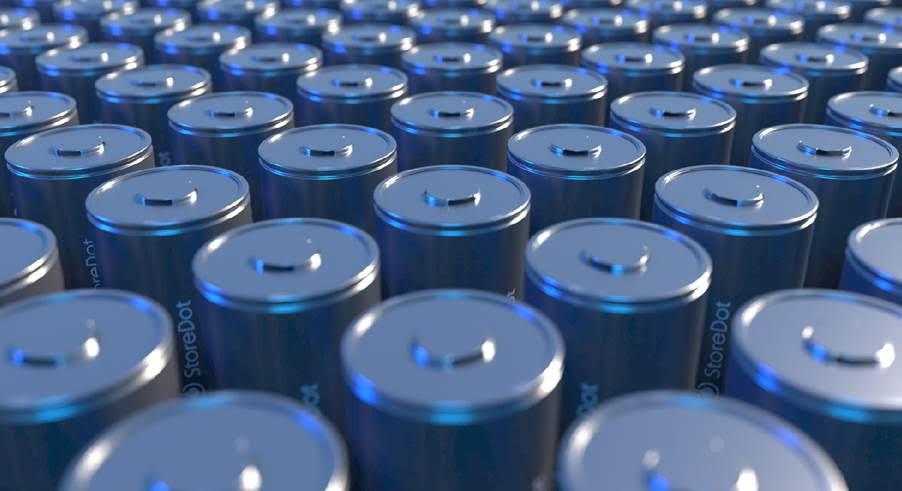
Tesla unveiled their 4680 cell at Battery Day last September, a groundbreaking new battery chemistry that would launch the automaker toward price parity with gas cars and would increase the effectiveness of the company’s batteries. Currently, Tesla is building the cells in-house at the Kato Road facility in Northern California, but it is also seeking third-party suppliers to help produce the cells as they will be used in Tesla’s high-volume vehicles, like the Model Y.
StoreDot’s 4680 cells appear to be similar, but the big difference is the claim about the charge rate. While Tesla’s 4680 cells are rumored to charge in fifteen minutes, according to Keith Ritter of PE Engineer Compliance (via InsideEVs), StoreDot’s cells are capable of a ten-minute charge.
The company said in a press release:
“StoreDot’s extreme fast charging cylindrical cells utilize a 4680 format, the one increasingly favored by global car makers, and have been in development for over three years. Pioneering work for these breakthrough technologies was kicked off at Warwick University in the UK with collaboration with StoreDot’s strategic partner – BP. It has been further developed harnessing experts from across the globe. The work is covered with five patents in the area of cell design and uses StoreDot’s continuous tab technology. Such cell design increases throughput and addresses safety and performance issues typically associated with the hard case structure of cylindrical cells. Testing at StoreDot facility has shown promising low levels of internal resistance. Cylindrical cell samples are now ramping up the production lines at EVE Energy, StoreDot’s manufacturing partner in China.”
StoreDot said it is in discussions with leading automotive manufacturers, although it did not detail specific brands. The increase of 4680 cells on the market could make the EV sector more competitive if large-scale companies have access to the batteries, but they won’t enter scale production until 2024.
What do you think? Let us know in the comments below, or be sure to email me at joey@teslarati.com or on Twitter @KlenderJoey.

Cybertruck
Tesla confirms date when new Cybertruck trim will go up in price
Tesla has officially revealed that this price will only be available until February 28, as the company has placed a banner atop the Design Configurator on its website reflecting this.
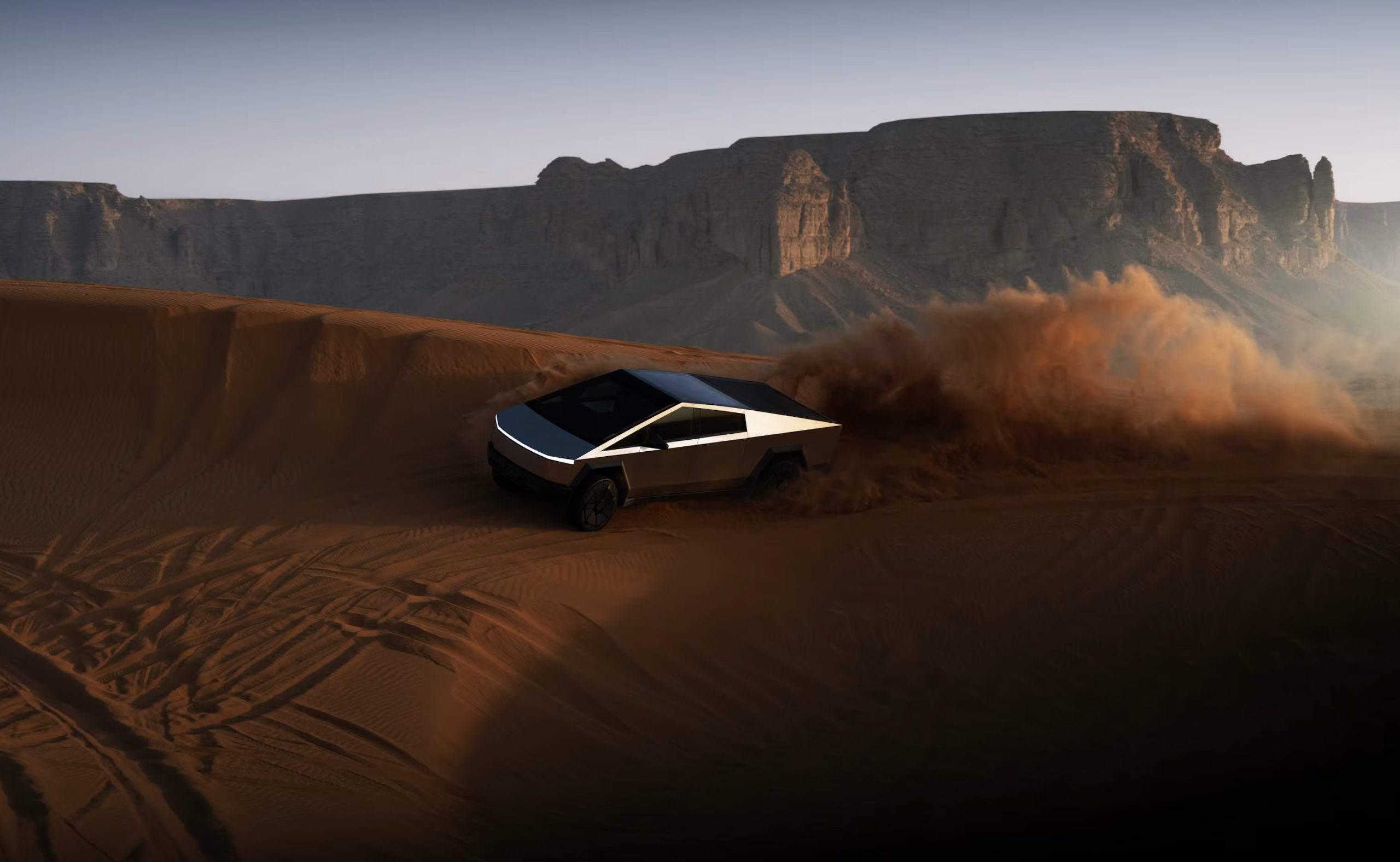
Tesla has confirmed the date when its newest Cybertruck trim level will increase in price, after CEO Elon Musk noted that the All-Wheel-Drive configuration of the all-electric pickup would only be priced at its near-bargain level for ten days.
Last week, Tesla launched the All-Wheel-Drive configuration of the Cybertruck. Priced at $59,990, the Cybertruck featured many excellent features and has seemingly brought some demand to the pickup, which has been underwhelming in terms of sales figures over the past couple of years.
Tesla launches new Cybertruck trim with more features than ever for a low price
When Tesla launched it, many fans and current owners mulled the possibility of ordering it. However, Musk came out and said just hours after launching the pickup that Tesla would only keep it at the $59,990 price level for ten days.
What it would be priced at subsequently was totally dependent on how much demand Tesla felt for the new trim level, which is labeled as a “Dual Motor All-Wheel-Drive” configuration.
Tesla has officially revealed that this price will only be available until February 28, as the company has placed a banner atop the Design Configurator on its website reflecting this:
NEWS: Tesla has officially announced that the price of the new Cybertruck Dual-Motor AWD will be increasing after February 28th. pic.twitter.com/vZpA521ZwC
— Sawyer Merritt (@SawyerMerritt) February 24, 2026
Many fans and owners have criticized Tesla’s decision to unveil a trim this way, and then price it at something, only to change that price a few days later based on how well it sells.
Awful way to treat customers – particularly when they already sent out a marketing email announcing the $59,990 truck…with zero mention of it being a limited-time offer.
— Ryan McCaffrey (@DMC_Ryan) February 24, 2026
It seems the most ideal increase in price would be somewhere between $5,000 and $10,000, but it truly depends on how many orders Tesla sees for this new trim level. The next step up in configuration is the Premium All-Wheel-Drive, which is priced at $79,990.
The difference between the Dual Motor AWD Cybertruck and the Premium AWD configuration comes down to towing, interior quality, and general features. The base package is only capable of towing up to 7,500 pounds, while the Premium can handle 11,000 pounds. Additionally, the seats in the Premium build are Vegan Leather, while the base trim gets the textile seats.
It also has only 7 speakers compared to the 15 that the Premium trim has. Additionally, the base model does not have an adjustable ride height, although it does have a coil spring with an adaptive damping suspension package.
Cybertruck
Tesla set to activate long-awaited Cybertruck feature
Tesla will officially activate the Active Noise Cancellation (ANC) feature on Cybertruck soon, as the company has officially added the feature to its list of features by trim on its website.
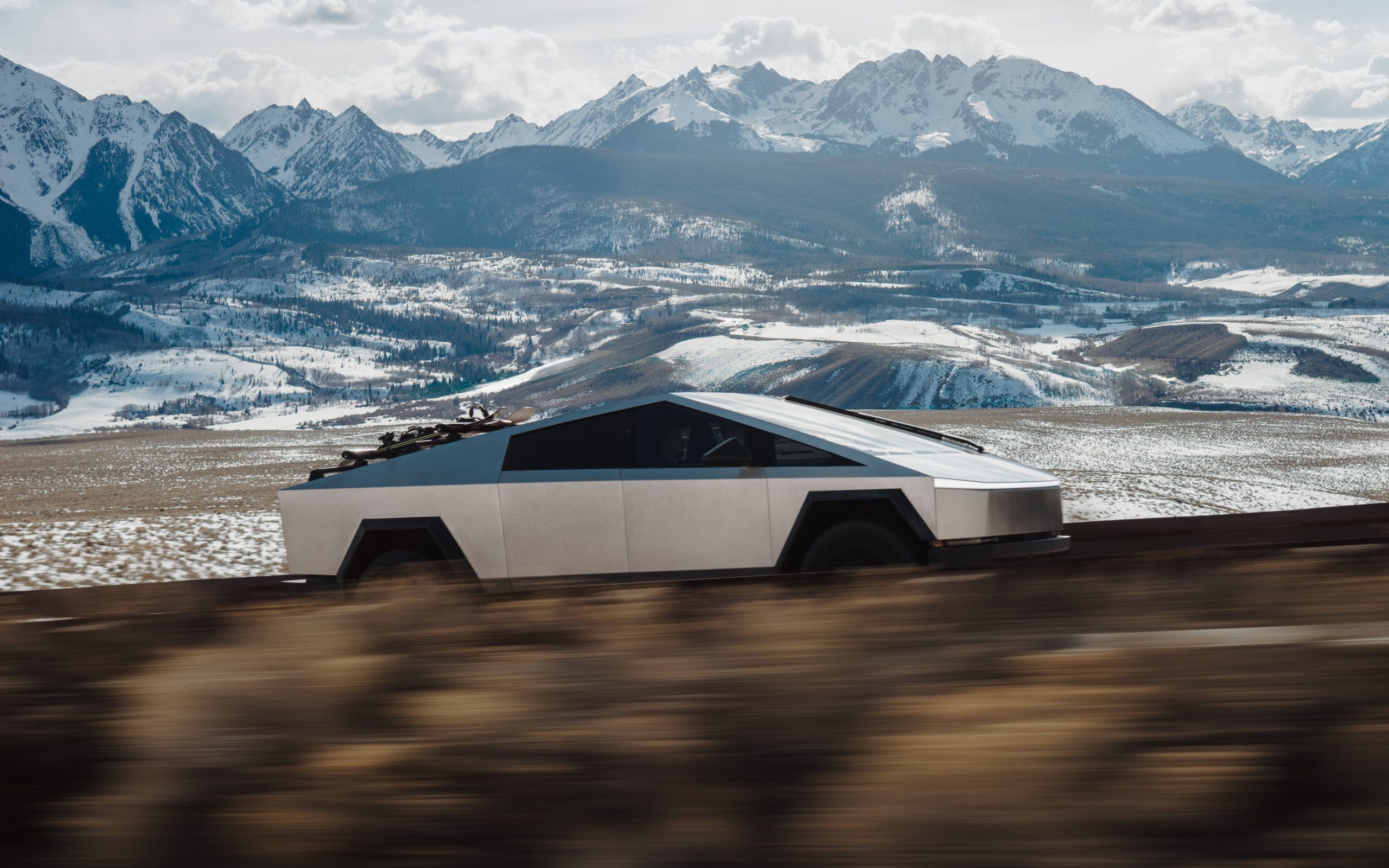
Tesla is set to activate a long-awaited Cybertruck feature, and no matter when you bought your all-electric pickup, it has the hardware capable of achieving what it is designed to do.
Tesla simply has to flip the switch, and it plans to do so in the near future.
Tesla will officially activate the Active Noise Cancellation (ANC) feature on Cybertruck soon, according to Not a Tesla App, as the company has officially added the feature to its list of features by trim on its website.
Tesla rolls out Active Road Noise Reduction for new Model S and Model X
The ANC feature suddenly appeared on the spec sheet for the Premium All-Wheel-Drive and Cyberbeast trims, which are the two configurations that have been delivered since November 2023.
However, those trims have both had the ANC disabled, and although they are found in the Model S and Model X, and are active in those vehicles, Tesla is planning to activate them.
In Tesla’s Service Toolbox, it wrote:
“ANC software is not enabled on Cybertruck even though the hardware is installed.”
Tesla has utilized an ANC system in the Model S and Model X since 2021. The system uses microphones embedded in the front seat headrests to detect low-frequency road noise entering the cabin. It then generates anti-noise through phase-inverted sound waves to cancel out or reduce that noise, creating quieter zones, particularly around the vehicle’s front occupants.
The Model S and Model X utilize six microphones to achieve this noise cancellation, while the Cybertruck has just four.
Tesla Cybertruck Dual Motor AWD estimated delivery slips to early fall 2026
As previously mentioned, this will be activated through a software update, as the hardware is already available within Cybertruck and can simply be activated at Tesla’s leisure.
The delays in activating the system are likely due to Tesla Cybertruck’s unique design, which is unlike anything before. In the Model S and Model X, Tesla did not have to do too much, but the Cybertruck has heavier all-terrain tires and potentially issues from the aluminum castings that make up the vehicle’s chassis, which are probably presenting some challenges.
Unfortunately, this feature will not be available on the new Dual Motor All-Wheel-Drive configuration, which was released last week.
News
Tesla Model S and X customization options begin to thin as their closure nears
Tesla’s Online Design Studio for both vehicles now shows the first color option to be listed as “Sold Out,” as Lunar Silver is officially no longer available for the Model S or Model X. This color is exclusive to these cars and not available on the Model S or Model X.
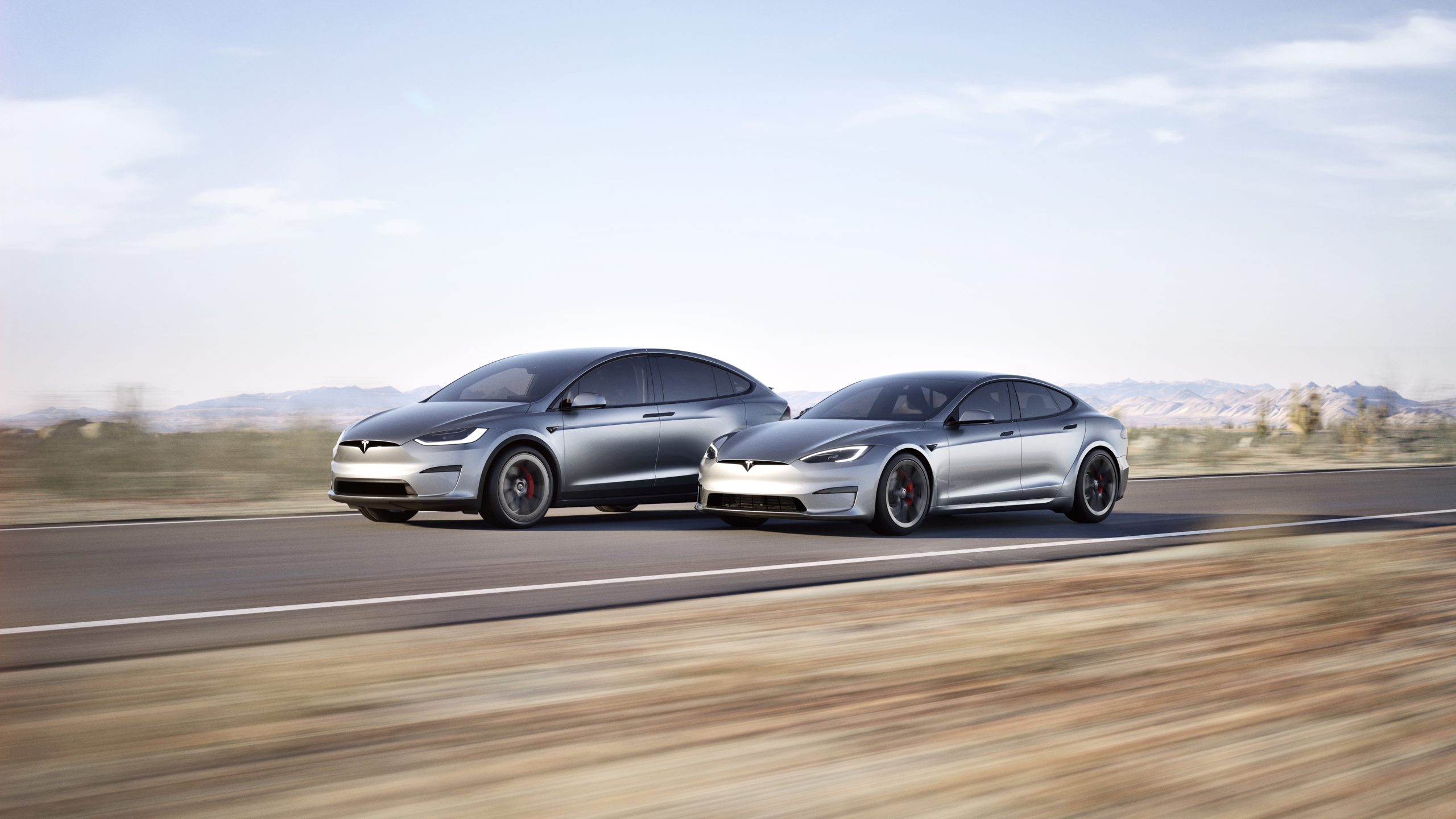
Tesla Model S and Model X customization options are beginning to thin for the first time as the closure of the two “sentimental” vehicles nears.
We are officially seeing the first options disappear as Tesla begins to work toward ending production of the two cars and the options that are available to those vehicles specifically.
Tesla’s Online Design Studio for both vehicles now shows the first color option to be listed as “Sold Out,” as Lunar Silver is officially no longer available for the Model S or Model X. This color is exclusive to these cars and not available on the Model S or Model X.
🚨 Tesla Model S and Model X availability is thinning, as Tesla has officially shown that the Lunar Silver color option on both vehicles is officially sold out
To be fair, Frost Blue is still available so no need to freak out pic.twitter.com/YnwsDbsFOv
— TESLARATI (@Teslarati) February 25, 2026
Tesla is making way for the Optimus humanoid robot project at the Fremont Factory, where the Model S and Model X are produced. The two cars are low-volume models and do not contribute more than a few percent to Tesla’s yearly delivery figures.
With CEO Elon Musk confirming that the Model S and Model X would officially be phased out at the end of the quarter, some of the options are being thinned out.
This is an expected move considering Tesla’s plans for the two vehicles, as it will make for an easier process of transitioning that portion of the Fremont plant to cater to Optimus manufacturing. Additionally, this is likely one of the least popular colors, and Tesla is choosing to only keep around what it is seeing routine demand for.
During the Q4 Earnings Call in January, Musk confirmed the end of the Model S and Model X:
“It is time to bring the Model S and Model X programs to an end with an honorable discharge. It is time to bring the S/X programs to an end. It’s part of our overall shift to an autonomous future.”
Fremont will now build one million Optimus units per year as production is ramped.
